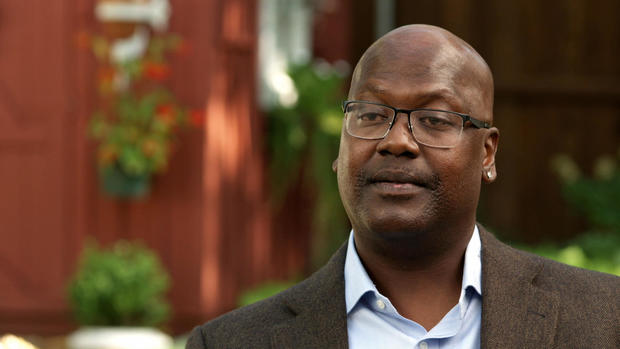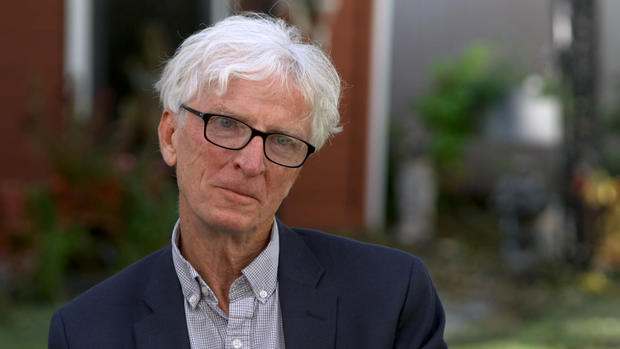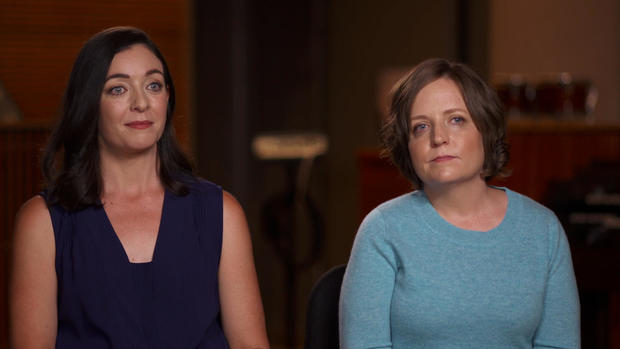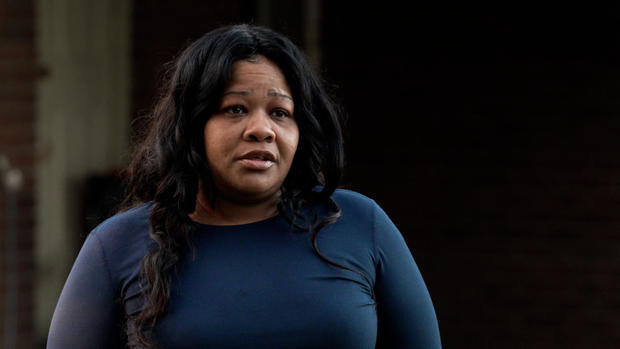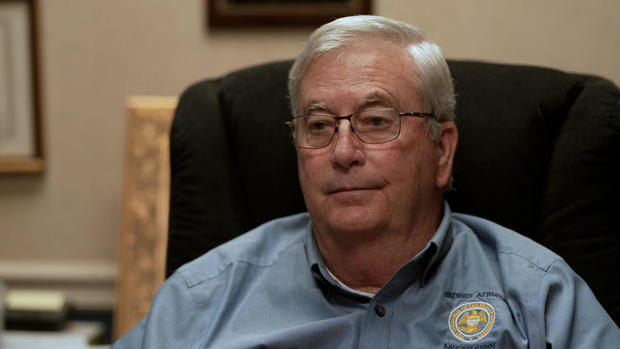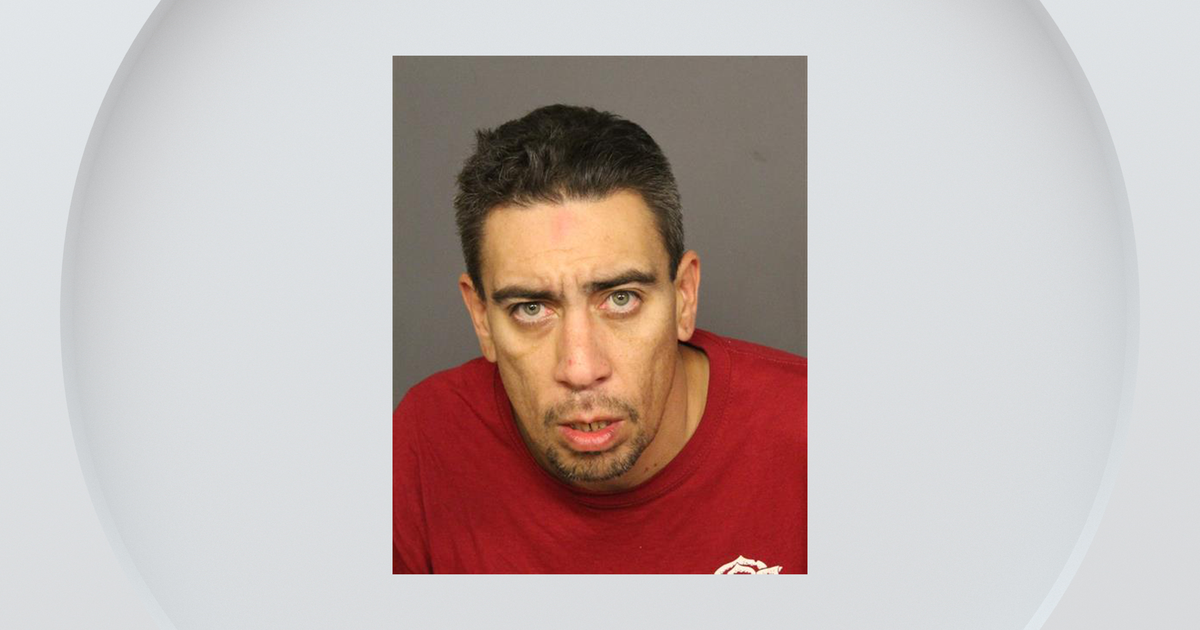How Curtis Flowers, tried six times for the same crime, was saved from death row
60 Minutes has covered a lot of stories about flaws in our criminal justice system over the years. But we'd never heard anything like the case against Curtis Flowers. Flowers, a Black man from Mississippi, was tried six times for the same crime by the same prosecutor. He might still be on death row if not for the work of a team of reporters from an investigative podcast. Tonight, you will hear from Curtis Flowers, the reporters who helped free him and the prosecutor who relentlessly pursued him for more than two decades.
It began in Winona, Mississippi on a July morning in 1996. Shortly after Tardy Furniture opened for the day, the store's owner, bookkeeper, delivery man and a 16-year-old were shot in the head execution-style. No one saw it happen.
Sharyn Alfonsi: When you heard about the crime and the way they were murdered, what was your reaction?
Curtis Flowers: Well, my heart dropped. The-- the first thing, you know I, I felt sorry for them. Then I thought, well, I could've been there.
Curtis Flowers had worked at Tardy that summer for three days, delivering and fixing furniture, but he was let go after he stopped showing up. Almost immediately after the murders, some victims' families suspected Flowers. The police questioned him, but made no arrest. Months passed. Flowers moved to Texas to live with his sister.
Sharyn Alfonsi: And there's a knock at the door.
Curtis Flowers: And I answered it. And the next thing you know I was all up against the wall, being handcuffed. And he explained to me that, 'We just have a warrant for your arrest back in Mississippi.' I said, 'For what?' And he said, 'Four counts of capital murder.' Man, I said, 'Me? Are you sure you got the right guy?'
Flowers had no criminal record and was more likely to be on stage with a gospel group than in handcuffs. There was no murder weapon. No DNA or fingerprints linking him to the crime. But it took an all-White jury just an hour to deliberate and convict him. At age 27, Curtis Flowers was sentenced to death and put in the Mississippi State Penitentiary known as Parchman Prison.
Sharyn Alfonsi: Were you scared?
Curtis Flowers: Oh yes.
Sharyn Alfonsi: What's Parchman like?
Curtis Flowers: The worstest thing you ever dreamed about. Yeah, like a nightmare cause, you know, you hear all kinds of noise at night, you know. Uh, there are inmates who have just snapped. Some who have lost it. They act up all night.
Sharyn Alfonsi: And you were sitting on death row, I imagine other death row inmates were being executed.
Curtis Flowers: Yes. Yes. And that, that was nerve-wracking itself.
His conviction was appealed and overturned. But there would be five more trials for Curtis Flowers, for the same crime by the same prosecutor.
Sharyn Alfonsi: How can a person be tried for the same crime six times?
Rob McDuff: This case is unprecedented in the history of the American legal system.
Attorney Rob McDuff of the Mississippi Center for Justice joined Curtis Flowers' legal team in 2019. In the first three trials Flowers was found guilty, but each conviction was overturned for prosecutorial misconduct.
Sharyn Alfonsi: And when we talk about prosecutorial misconduct, were these simple missteps? Or was it something bigger going on here?
Rob McDuff: No, these convictions were reversed because of the prosecutor's misrepresentation of the evidence to the jury and because of his discrimination in the, in selection of the jury.
Sharyn Alfonsi: But the same prosecutor goes after Curtis Flowers again time after time. There's nothing in our system that stops that from happening?
Rob McDuff: Unfortunately, there is not. This prosecutor was like Captain Ahab hunting the whale.
The prosecutor was District Attorney Doug Evans, who even after hung juries in trials four and five, kept going. In 2010, Evans finally got a conviction to stick in trial six. Flowers returned to death row. Then an email changed his fortunes.
Madeleine Baran: It's been more than three years since I got an email from a woman telling me about a man named Curtis Flowers...
Madeleine Baran is the lead reporter for American Public Media's podcast "In the Dark." Samara Freemark is the podcast's managing producer.
Madeleine Baran: Right away it was like, 'Is this possible that someone would be tried six times?'
To investigate how that happened, the "In the Dark" team descended on Winona, a town of 5,000. Most of downtown, like Tardy Furniture, had faded away. The podcast reporters planned to stay a few months. They stayed a year, knocking on doors and interviewing hundreds of people.
Sharyn Alfonsi: Was there anything that anybody said early on that made you think, 'Oh, well, maybe he was the guy who did this?'
Madeleine Baran: Yeah, I mean, of course, we have to assume that somebody has been convicted four times, there's a chance he's guilty, of course. But the more we looked into the evidence, there wasn't a single piece of evidence that actually held up.
The first piece of evidence to crumble was the winding route Doug Evans told jurors that Curtis Flowers walked that July morning.
Madeleine Baran: That, you know, Curtis woke up that morning, he was angry, he no longer worked at the furniture store. He wanted to kill the people there, but he didn't have a gun. So he walked across town, stole a gun from a car, walked home, still angry. Left his house, walked with the gun to the furniture store, shot four people in the head, walked home.
It seemed far-fetched flowers would brazenly walk so far in broad daylight. When the podcast reporters started talking to route witnesses who claimed they saw Flowers, a pattern emerged.
Madeleine Baran: It was clear they did not, for example, pick up the phone and call the police and say, 'I saw something suspicious,' that they were sought out, like, months later in a lotta cases and it turned out that they felt like they needed to tell law enforcement that this happened. Or as one guy said, 'They already told me that they knew I saw Curtis.'
Samara Freemark: 'They had the whole story laid out for me and all I had to do was say yes.'
Sharyn Alfonsi: Who was the most important route witness?
Madeleine Baran: Clemmie Fleming. Clemmie testified that Curtis Flowers was running away from the furniture store shortly after the murders. This is of course incredibly damning testimony if it's true. And she testified to it six times.
Sharyn Alfonsi: And what did you learn?
Madeleine Baran: That Clemmie was not telling the truth.
Clemmie Fleming admitted to the podcast that she didn't remember when she saw Flowers running. In November, we spoke to her in Winona, where she still lives.
Sharyn Alfonsi: You saw Curtis running through town?
Clemmie Fleming: Yeah.
Sharyn Alfonsi: But you weren't sure…
Clemmie Fleming: I wasn't sure what day it was. I really, it happened but I don't know what day it was.
Sharyn Alfonsi: Did you ever tell the prosecutors, 'Hey, I'm not sure about the day that I saw.'
Clemmie Fleming: Yeah.
Sharyn Alfonsi: And what did they say?
Clemmie Fleming: They ain't wanna hear that. They just wanted me to tell what I seen. They don't wanna worry about what day I seen it.
Another key witness also recanted to "In the Dark." Odell "Cookie" Hallmon, a career criminal, had testified that Curtis Flowers confessed to him in prison. Producer Samara Freemark tracked down Hallmon in Parchman Prison.
Sharyn Alfonsi: And how were you talking to him?
Samara Freemark: Well, it turns out he had an illicit cell phone. He would set up a blanket fort to talk so the guards wouldn't, wouldn't be able to see him. So he would sort of hang blankets up over his bunk, and hide in there.
Eventually, he admitted to Freemark that he made the story up about Curtis confessing. This is Hallmon on the phone from prison.
Hallmon on "In the Dark": As far as him telling me he killed some people, hell, naw, he ain't never told me that. That was a lie.
The podcast reported that after Hallmon came forward with the phony confession, he cut generous deals with prosecutors for years and avoided punishment for multiple felony charges. While he was free, in 2016, he murdered three people and was finally sentenced to life in prison.
The revelations turned "In the Dark" into a sensation. The podcast was downloaded 42 million times. But Curtis Flowers could not listen to it. He was on death row in Parchman Prison reading transcripts of the podcast.
Sharyn Alfonsi: And you're reading about these witnesses finally recanting their stories
Curtis Flowers: I think my first reaction was, it's about time (laughs). And I was just ready to go home.
As Flowers waited on death row, the podcast team continued unraveling his case by scouring closed jails and abandoned factories for clues and documents.
Samara Freemark: We had to go and search them out like we were on a treasure hunt.
Madeleine Baran: And you're like, 'What are those mounds in the corner, you know?' And you're like, 'Oh, those are public records for this county. And then you go through it and you're like, 'These are covered in mouse droppings. They're covered in mold.'
They also analyzed decades of court data that revealed prosecutor Doug Evans had a history of excluding Black people from juries at a disproportionate rate. Across all of Curtis Flowers' trials, 61 of the 72 jurors were White. All 61 voted to convict. Those numbers reverberated far beyond Mississippi. In 2019, the U.S. Supreme Court ruled that Evans and the state of Mississippi had violated Curtis Flowers' constitutional rights and overturned his conviction. Justice Brett Kavanaugh wrote that there was a "relentless, determined effort to rid the jury of Black individuals." Six months later, Curtis Flowers was released on bail. He walked out of jail with a monitor on his ankle, and his sisters on his arms.
For the first time in 23 years he was out.
Curtis Flowers: And I'm telling you, I felt like I was floating. I was just ready to go.
In September, the ankle monitor came off. The Mississippi attorney general's office dismissed all charges against Curtis Flowers. It wrote that "it is in the interest of justice that the state will not seek an unprecedented seventh trial of Mr. Flowers." In November, Doug Evans, the man who prosecuted Curtis Flowers six times, sat down with us in his office for a rare interview.
Sharyn Alfonsi: Why did you prosecute him again and again?
Doug Evans: Because I knew he was guilty. And the families knew he was guilty. And the families deserve justice.
Sharyn Alfonsi: But what about now that those witnesses have changed their stories?
Doug Evans: I don't think, know that any of them have changed their stories.
Sharyn Alfonsi: Well, Clemmie, Odell.
Doug Evans: But that's not in court under oath.
Sharyn Alfonsi: Do you think that Curtis could get a fair trial when the jury is predominately White?
Doug Evans: Yes. Race has nothing to do with our part of what we do. A lot of times race gets thrown in as an excuse if there is no defense.
Sharyn Alfonsi: Justice Brett Kavanaugh wrote there seemed to be a "relentless, determined effort to rid the jury of Black individuals.' That's from the Supreme Court.
Doug Evans: And I can't understand that. Basically, what he is doing is accusing me like he was accused, before he was put on the Supreme Court.
Evans says he never listened to the podcast but is convinced "In the Dark" set out to discredit his case.
Sharyn Alfonsi: The way this is being presented now was that it was a weak case. That there were no fingerprints. There was no DNA. There was no witness that puts him at the crime scene. There's these string of witnesses that say they saw him on the street…
Doug Evans: Oh, you've got a witness… that sees him walk in the front door. That's about as close as you can get.
But over six trials no witness ever testified to seeing Curtis Flowers walk in the front door at Tardy Furniture. Evans then made another startling claim.
Sharyn Alfonsi: You would think that because the murders were so gruesome you know nobody saw him covered in blood or anything like that.
Doug Evans: Well, there were people that saw him burnin' clothes after that, but we weren't able to introduce that either. Ah, supposedly, they saw him burning clothes and a pair of tennis shoes.
Sharyn Alfonsi: Where did that happen?
Doug Evans: It was outside his house, in that area over there.
But in 12,000 pages of pre-trial hearings and trial proceedings that we reviewed we couldn't find any mention of that story. Rob McDuff, Curtis Flowers' lawyer, said that's because it never happened.
Rob McDuff: (Laughs) You know, it is just preposterous that Doug Evans continues to say these things. But he's been called out on his deceptions, he's been called out on his misconduct time and time and time again.
Curtis Flowers: I believe every case Doug Evans ever handled should be looked into. I truly do. I, I, lord knows I would hate to see this happen to someone else.
Curtis Flowers is now 50 years old. He spent nearly half his life in prison. In November, during a visit to see his family in Winona, he told us the adjustment has been slow.
Curtis Flowers: I'm so used to being in shackles, making little baby steps…
Sharyn Alfonsi: Really?
Curtis Flowers: So then when, you know, I'm turned loose and able to step like I wanna, yeah it takes a lot of wind.
Sharyn Alfonsi: You couldn't walk normally?
Curtis Flowers: Yeah, I had to adjust to it.
Sharyn Alfonsi: Because you were always in shackles?
Curtis Flowers: Yes.
But somehow after 23 years, the former gospel singer, never lost his voice.
Produced by Draggan Mihailovich and Jacqueline Williams. Broadcast associate, Elizabeth Germino. Edited by Joe Schanzer.

